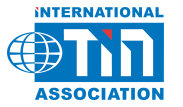
Legislation & Compliance
Anticipating the changing supply chain approach
External stakeholder attention was first drawn to the tin industry in the mid-2000’s as a result of ‘conflict minerals’ campaigns. In the following years, external pressures and expectations focused only on the links between tin and conflict or fundamental human rights abuses such as torture in the central African region. While metal buyers tended to focus on the Dodd Frank requirements, the International Tin Association participated in the drafting of the OECD Due Diligence Guidance for companies sourcing from high-risk locations and also practically implemented solutions through the ITSCI Programme.
In 2016, a shift in the approach to supply chain issues became evident with discussions moving towards the implementation of due diligence and including a wider scope of issues, in particular child labour, and unlimited geographic areas. Metal users introduced many surveys and tools requesting information and issues beyond conflict in Africa. Our focus is to continue to promote and support harmonised industry activities which minimise confusion and cost. Part of our role is to explain local situations and the potential risk of harm if further de-facto embargos are created.
Legislation News
OECD Guidance
OECD Due Diligence Guidance for Responsible Supply Chains of Minerals from Conflict-Affected and High-Risk Areas
Dodd-Frank conflict minerals
Dodd-Frank Act, Section 1502: on ‘conflict minerals’ from the Democratic Republic of the Congo and adjoining countries
EU minerals due diligence
The EU’s Regulation requiring due diligence on minerals and metal sources to avoid contributing to conflict and other risks
Adhering to Chemical & Product Regulation
Regulation is an ever increasing and changing factor in product compliance.The International Tin Association keeps track of both EU and International legislation and evaluates whether the new changes or amendments to existing legislation provides a threat or opportunity to the tin industry.
The International Tin Association was instrumental in forming the REACH TIn Metal Consortium, along with traders and other key stakeholders in the industry. The Association currently acts as the Secretariat for the EU REACH Tin Metal Consortium and can provide information on human health and environmental impacts of tin useful for REACH registration of tin metal, and potentially other inorganic tin compounds.The South Korean chemical management programme has recently been launched with similar aims as EU REACH.
Several regulations, both EU and international are in place stipulating the amount of tin that can be found in food. The International Tin Association has complied a list of the different types of tin that can be found in food, the restriction limits and the appropriate legislation.
Of particular note is also the RoHS directive, which has limited lead in solder in electrical and electronic equipment, which has lead to an increase in tin use. Lifting of exemptions in RoHS directive would further increase tin use.
EU REACH
Understanding obligations to comply with the EU REACH regulation

